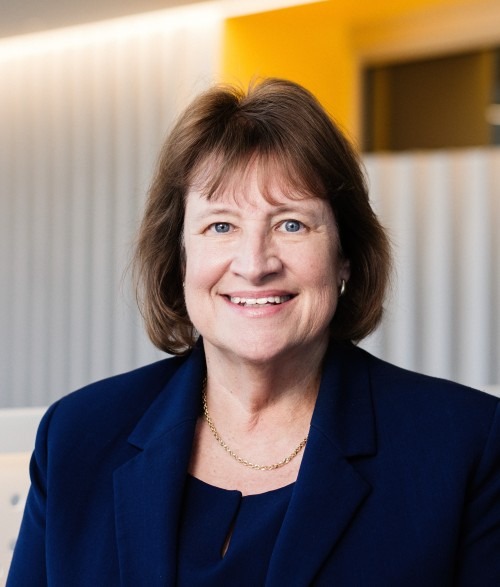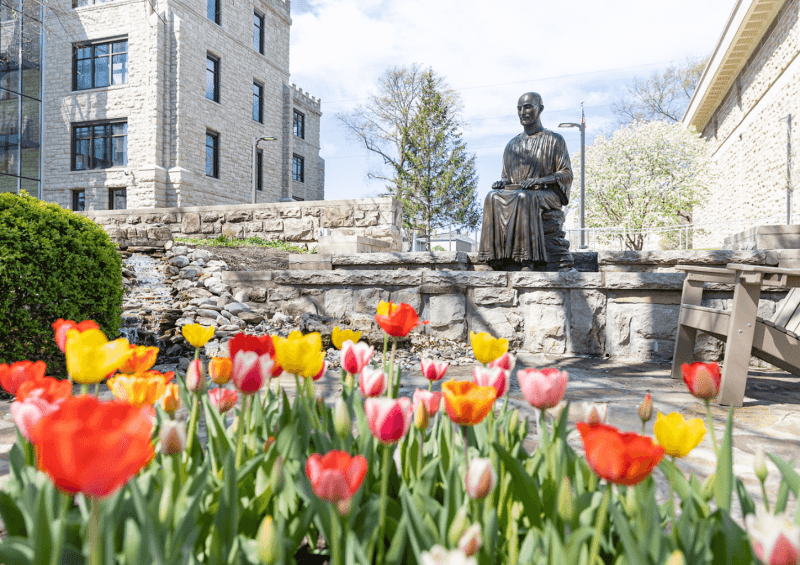Sandra Cassady, Ph.D., president of Rockhurst University
Image

In more than 30 years in higher education leadership, I can’t recall a time as complex as the one we’re in now. There has been a shift: demographic changes, evolving perceptions of the value of a degree, and widespread calls for accountability are all converging. Navigating this environment takes more than strategic thinking. It takes courage. And it takes a steadfast commitment to ethical leadership.
At Rockhurst University, we often talk about leading with courage and living with purpose. But what does that truly look like in action? How do we uphold our values in moments of uncertainty, when the right path forward isn’t always the easiest one?
Doing What’s Right, Even When It’s Hard
At its core, ethical leadership is about doing what’s right. It means making decisions that align with your mission and values, even when those decisions are difficult or unpopular. In my own leadership journey, I’ve often found that the toughest decisions involve people; how we manage performance, how we hold others accountable, and how we preserve the dignity of individuals while protecting the integrity of the institution.
In these moments, discretion and compassion go hand in hand with clarity and action. Ethical leadership doesn’t always allow for complete transparency, especially when confidentiality is required. But it always requires consistency. You have to be clear about what you stand for and live those values every day.
Courage Isn’t Reckless, It’s Purposeful
Leading with courage doesn’t mean charging ahead without a plan. In fact, it’s the opposite. Courageous leadership in a Jesuit university context involves thoughtful risk-taking, informed by data and guided by a deep sense of mission. It means being willing to change what’s not working, even if the path forward is uncertain.
I often remind our team that we can’t keep doing what we’ve always done and expect different results. Courage means being honest about where we are, where we need to go, and what it will take to get there, even when it means breaking away from tradition or weathering criticism.
That’s why a strong, actionable strategic plan is so important. It provides clarity. It gives people a shared destination. And it ensures we’re not just reacting to challenges; we’re leading through them.
Courage in Crisis: Lessons from the Pandemic
Few situations have tested the resolve of higher education leadership like the COVID-19 pandemic. In the absence of a playbook, we leaned on what we did have: data, communication and our values.
In higher education, we developed public dashboards to keep our community informed while respecting privacy. We consulted trusted health authorities and adjusted frequently. And through it all, we prioritized safety, care and compassion, for our students, for their families and for one another.
Those months reinforced the importance of courageous decision-making. But they also taught us the value of trust. You can’t wait for a crisis to start building relationships. The leaders who navigated that moment most effectively were those who already had strong foundations in place.
Image

Rooted in Jesuit Values
As a Jesuit university, Rockhurst is shaped by a centuries-old tradition of ethical reflection, discernment, and care for the whole person – what we call cura personalis. That value permeates everything we do, from how we engage students to how we make institutional decisions.
We strive to create a community where students are seen, supported and challenged to grow. When someone is absent from class, it doesn't go unnoticed. When a student struggles with mental health, academic performance or spiritual questions, we surround them with support, not just because it's our job, but because it's our calling.
These values extend to how we lead as well. Ethical leadership means creating space for diverse voices, encouraging courageous conversations, and recognizing that every member of our community has something to contribute.
At the cabinet level, we begin our meetings with reflections, sometimes in gratitude, sometimes in prayer, and sometimes in acknowledgment of a colleague’s hardship. It’s a reminder that we’re more than decision-makers. We’re people, leading people.
Growing in Leadership, Together
No leader has all the answers. That’s why I continue to seek out opportunities to learn from colleagues, national networks, and from our students. I stay connected to peer institutions through associations like the Association of Jesuit Colleges and Universities, the Council of Independent Colleges, and the Association of Catholic Colleges and Universities where we share best practices and collaborate across institutions.
Ethical leadership also means staying open; open to new ideas, new models, and new ways of serving our students. Collaboration itself can be a courageous act, especially in a competitive sector. But when done right, it creates synergy. And that’s when the real transformation begins.
Wisdom as Our Guide
If there’s one value I hope will continue to shape Rockhurst University long into the future, it’s wisdom. Our motto, “Wisdom Has Built Herself a Home” reminds us that knowledge alone isn’t enough. We must also reflect, discern, and apply what we’ve learned in service of the greater good.
In this moment, when leadership is both more scrutinized and more necessary than ever, wisdom and courage must go hand in hand. As leaders, we are called to act, not recklessly, but purposefully. Not alone, but together.
And always, always with integrity.
